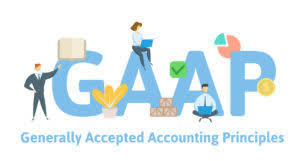
Working for a tax law firm as an Enrolled Agent, you will be pulling, processing, saving, and sharing IRS account transcripts. You will get to know your clients during a time when they really need help. This means you’ll have day to day contact with clients, IRS ACS, IRS appeals officers, IRS revenue officers, IRS revenue agents. You will respond enrolled agent salary to and perform client audits where you will review tax returns and reconcile financials. This means you will be working to gather financial documents, work to process and save them for future review. As an EA seeking employment in this area of work you will generally need (2) years of experience preparing individual federal and state returns.

Average Total Cash Compensation

For example, your years of experience as a tax professional will help you earn more. The size of the company and the scope of your responsibilities also affect your earnings. CPAs, on the other hand, require a bachelor’s degree and a state’s board certification, usually after passing the comprehensive four-part CPA exam. CPAs are more than just tax professionals; they also serve as financial advisors and business consultants. They are well-versed in financial accounting and reporting, can conduct audits, offer business environment and concepts advice, and even specialize in personal finance management.
For Enrolled Agents: The Special Enrollment Examination (SEE)
They’re typically adept at dealing with the IRS, and some EAs even worked as IRS agents before opening their own practices. To become an EA, candidates must pass a three-part test, apply to the IRS, and pass a background check. To become an enrolled agent, the IRS requires a few straightforward https://www.bookstime.com/articles/how-much-does-bookkeeping-cost steps. According to Payscale.com, entry-level EAs generally begin with a salary of about $52,000 per year. You will also fill out financial forms (assets and liabilities, income and expenses), and cross-reference this information with pertinent financial documents per IRS guidelines.
Enrolled Agent Salary vs. CPA Salary
- This means that enrolled agents are able to represent taxpayers in any state in the country.
- Interpersonal skills are important and successful tax preparation companies often upsell additional products and services such as audit defense, offering peace of mind for your tax clients.
- The AFSP is a yearly 15 to 18 hour continuing education program governed by the IRS.
- Individuals who are considering becoming enrolled agents should enjoy working with people and have high ethical standards.
- Although CPAs may have a greater earning potential, that salary comes with the need to spend longer in school, gain more work experience, and take a much more in-depth exam.
- A senior-level enrolled agent with between 10 and 20 years of experience can typically expect to earn an average salary of $55,000.
Take into consideration not just the EA vs CPA salary, but also the educational qualifications, continuing education requirements, and the kind of work-life balance each profession offers. To become a CPA, candidates must pass a four-part exam and comply with education and experience requirements. The exam is the same no matter which state it’s taken in, but every state has its own education and experience requirements. Most require at least a bachelor’s degree and at least two years of public accounting experience.
- As of 2023, over 46,000 public accounting firms existed in the United States.
- Therefore, the EA salary range in that city is a little lower, with the average salary about $51,560.
- Once completed, you are listed on the IRS’ RPO database as an official “Annual Filing Season Program Participant”.
- CPAs are best for broader accounting needs and identifying credits and deductions to increase your tax refund or lower your tax bill.

While this position is commonly filled by a CPA, the Enrolled Agent designation is a great way to secure your tax specialization. Staff accountants handle various financial duties such as ensuring financial statements are prepared correctly and that companies follow the laws and regulations for financial practices. They handle balancing the budget and must use budgeting and auditing software programs. Bookkeepers ensure that a business makes the most economically viable and safe decisions to keep finances tight and under control. This position does not exclusively involve taxes, but having experience with tax planning can be beneficial to many bookkeepers.
Which U.S. City Offers the Highest Salaries for Enrolled Agents in 2024?
But fortunately, you can prepare to pass by utilizing an EA review course. And with affordable pricing, this investment in your future definitely pays off. So, use our comparisons of the best EA review courses to find the right EA course for you, and use our EA discounts to save on your preferred exam prep. Enrolled agent salaries at IDEMIA and Acuity Insurance are the highest-paying according to our most recent salary estimates.
- Office managers oversee several ongoing projects at once and work with staff to ensure that operations run smoothly.
- The big chains pay their more experienced enrolled agents between $20 and $30 per hour on average, which comes to between $40,000 and $50,000 annually.
- Due to the fact that this type of work can be quite complex, the job of an EA is often in high demand.
- IRS Revenue agents are responsible for reviewing tax returns and conducting audits, as well as identifying and collecting overdue taxes.
- The hearings that an EA will often take part in usually occur via telephone.
- The average Enrolled Agent salary is approximately $52,000 annually, as compared to CPAs, who earn an average of approximately $70,000 a year.
EA vs. CPA Tax Professionals: What’s the Difference?
This is because the income potential for enrolled agents tends to taper out over time. By comparison, a CPA can have a number of opportunities for earning money. For instance, CPAs working for conglomerates or in a CPA firm could easily bring in six-figure salaries. Both certified public accountants (CPAs) and enrolled agents (EAs) must adhere to strict ethical standards. Among the differences between these two careers is that certified public accountants are regulated at the state level. In order to become a certified public accountant, candidates are required to complete a minimum of 150 undergraduate hours.

